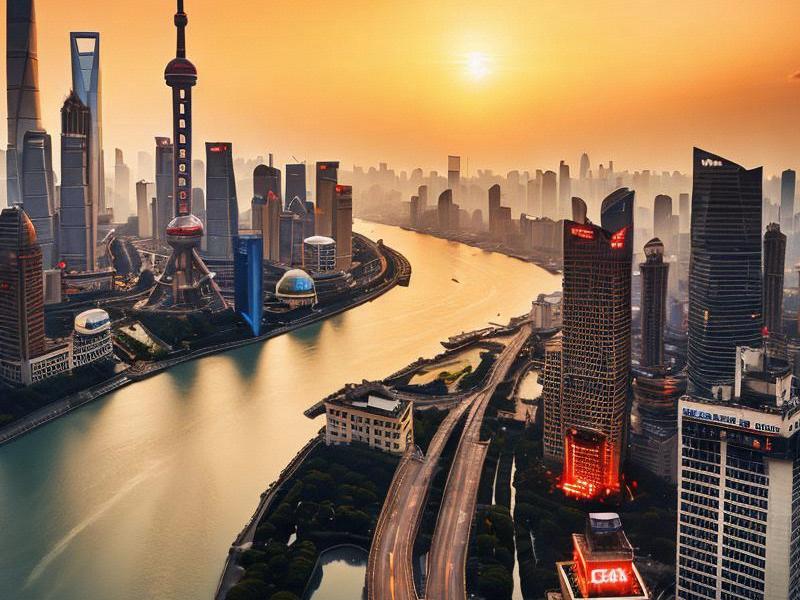This article delves into the rich and diverse cultural landscape of Shanghai, exploring its historical roots, modern influences, artistic achievements, and the unique blend of tradition and innovation that defines this vibrant metropolis.

Shanghai, a city that has long been a beacon of China's economic and cultural development, is a place where the old and the new coexist in harmony. Known as the "Pearl of the Orient," Shanghai's cultural identity is a tapestry woven from threads of history, international influence, and local creativity.
The history of Shanghai's culture can be traced back to ancient times, but it was during the 19th century that the city began to take shape as a major cultural hub. The opening of the Treaty Ports following the First Opium War brought an influx of foreign influence, which significantly shaped the city's cultural fabric. This period saw the establishment of concessions, where Western architecture, fashion, and customs mingled with traditional Chinese elements, creating a unique cultural blend.
One of the most striking aspects of Shanghai's culture is its architectural heritage. The Bund, a waterfront area along the Huangpu River, is a showcase of colonial-era buildings that have been preserved and restored. These structures, with their Art Deco and Gothic styles, stand in stark contrast to the modern skyscrapers of Lujiazui, the financial district. The juxtaposition of these architectural styles reflects the city's ability to embrace both its past and its future.
爱上海同城对对碰交友论坛 Shanghai's literary and artistic traditions are deeply rooted in its history. The city has produced many renowned writers, such as Lu Xun, Mao Dun, and Eileen Chang, whose works have had a profound impact on Chinese literature. Their stories often reflect the complexities of life in Shanghai, capturing the essence of the city's spirit. In recent years, Shanghai has also emerged as a center for contemporary art, with galleries and museums like the Power Station of Art and the M50 Creative Park showcasing the works of both domestic and international artists.
The performing arts are another vital component of Shanghai's cultural scene. Traditional Chinese opera, particularly the Yueju (Shanghai opera), continues to be performed, preserving the city's戏曲传统 (traditional arts - traditional arts). At the same time, Shanghai is home to world-class theaters and concert halls, such as the Shanghai Grand Theatre and the Mercedes-Benz Arena, which host a wide range of performances, from classical music and ballet to pop concerts and theater productions.
Cuisine is an essential aspect of any city's culture, and Shanghai is no exception. The city is famous for its signature dish, 小笼包 (Xiaolongbao - soup dumplings), which are delicate parcels of meat and broth encased in thin dough. Other local specialties include 红烧肉 (Hongshao Rou - braised pork belly) and 生煎包 (Shengjianbao - pan-fried dumplings). Shanghai's culinary scene is not only about traditional dishes but also about the innovative fusion of flavors and techniques that reflect the city's cosmopolitan nature.
上海贵族宝贝龙凤楼
Festivals and events play a crucial role in showcasing Shanghai's cultural vibrancy. The Shanghai International Film Festival, one of the oldest and most prestigious film festivals in Asia, attracts filmmakers and audiences from around the world. The Shanghai Fashion Week is another major event, highlighting the latest trends in fashion and design. These events, along with numerous other cultural festivals, provide a platform for the city's creative community to thrive and for residents and visitors to experience the richness of Shanghai's culture.
Education and research institutions also contribute to Shanghai's cultural landscape. Fudan University and Tongji University are two of the city's most prominent institutions, known for their academic excellence and contributions to various fields of study. These universities, along with others, foster a culture of learning and innovation, attracting students and scholars from across the globe.
爱上海419 Shanghai's cultural identity is further enriched by its position as a global city. The city's status as a major financial and trade hub has made it a melting pot of cultures, with people from all over the world living and working here. This diversity is reflected in the city's neighborhoods, where one can find everything from French Concession-style cafes to Korean barbecue restaurants, and from international chain stores to local boutiques.
The city government has recognized the importance of preserving and promoting its cultural heritage. Initiatives such as the Shanghai Cultural Expo and the Shanghai Heritage Conservation Project aim to protect the city's historical sites and artifacts while encouraging the development of new cultural industries. These efforts ensure that Shanghai's cultural legacy is passed on to future generations.
In conclusion, Shanghai's culture is a dynamic and multifaceted entity that embodies the city's history, international influences, and local creativity. From its stunning architecture and rich literary traditions to its vibrant performing arts scene and culinary delights, Shanghai offers a unique cultural experience that is both captivating and enduring. As the city continues to evolve, its cultural identity remains a source of pride and inspiration for its residents and a magnet for visitors from around the world.
The blend of tradition and modernity in Shanghai's culture is a testament to the city's resilience and adaptability. It is a place where the past and the present coexist, creating a cultural landscape that is as diverse as it is fascinating. Whether you are exploring the historic streets of the French Concession, enjoying a performance at the Shanghai Grand Theatre, or savoring the flavors of Xiaolongbao, Shanghai's culture offers an unforgettable journey through time and space.